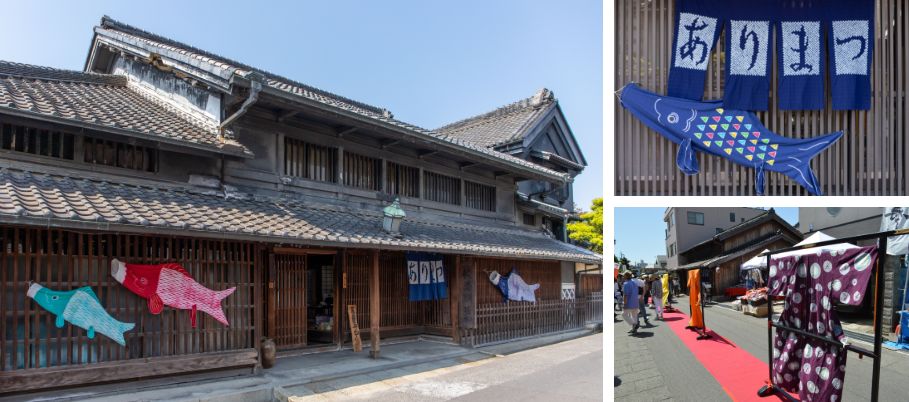-
- USA/Canada 1-800-285-2726
- Australia (02) 8006 4411

Only a 30 minutes trip from Nagoya, which is one of the largest cities in Japan, Arimatsu is a rare town where time has stood still. The Arimatsu Village was founded in 1608 between Chiryu Post Station and Narumi Post Station on the famous Tokaido Trail. Filled with tea houses, this village was a post station that grew in popularity thanks to the Arimatsu-Narumi shibori (Arimatsu tie-dying) techniques that developed in the area. Many who traveled along the Tokaido Trail would purchase towels, yukata, and other goods dyed with the Arimatsu-Narumi techniques. While the original village was reconstructed after a fire in 1784, the village has been reconstructed and preserved to retain the traditional architecture from when it was first founded. The buildings use tile-roofing, nurigome-zukuri (a process used to build a fire-resistant wall), mushikomado (a type of window containing an insect cage-like lattice), and namako-kabe structures (method to fireproof walls) to retain it's traditional atmosphere. Guests of Arimatsu Tokaido Old Town are highly encouraged to visit the Shibori Tie-Dyeing Museum and try their hand at making a shibori-dyed handkerchief as a souvenir. Create a unique memento of your Japan vacation with a unique creation all your own.
If you plan on joining our fully-guided Quilt Festival Japan tours between Tokyo and Kyoto, enjoy this wonderful preserved village while we learn about Shibori Dying on an exciting Japan vacation!
Dye Your Own Shibori
One of the Largest Castles during the Edo Period
Beautifully Preserved with Old Homes in Takayama
Preciously restored neighborhood filled with traditional Kyoto-esque shops
Shibori is the method of dyeing cloths.
Kawashima Selkon Textile museum exhibiting various works produced by the company and historic textile artifacts
History of Noritake's Ceramics & Scenic Garden
Japanese Indigo dyeing and the Pure Vegetable Dyeing